2019 SDN上机第1次作业
1. 安装轻量级网络仿真工具Mininet
环境:Ubuntu 18.04 LTS
2. 用字符命令搭建如下拓扑,要求写出命令
命令:
``
sudo mn --topo linear,3
``
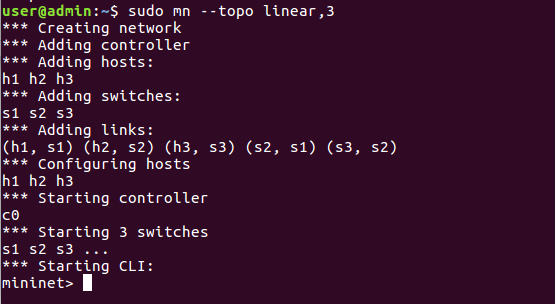
命令:
sudo mn --topo tree,fanout=3,depth=2

3. 利用可视化工具搭建如下拓扑,并要求支持OpenFlow 1.0 1.1 1.2 1.3,设置h1(10.0.0.10)、h2(10.0.0.11)、h3(10.0.0.12),拓扑搭建完成后使用命令验证主机ip,查看拓扑端口连接情况。
-
命令执行启动Mininet可视化界面

-
设置ip
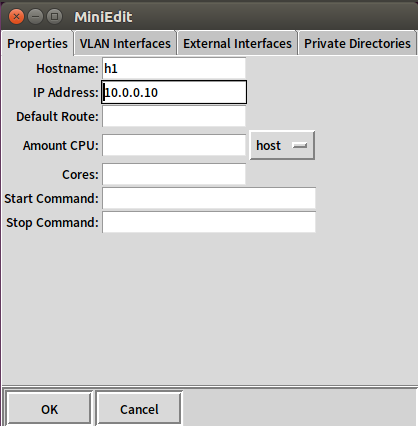

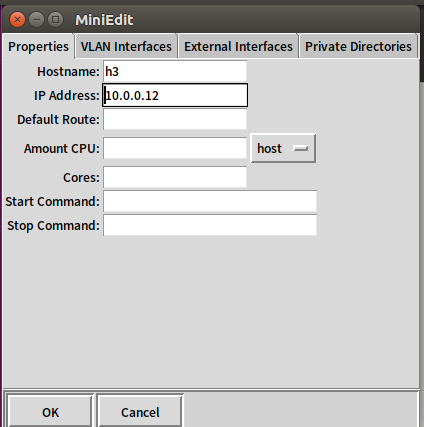
设置ip后,命令行显示

-
勾选CLi
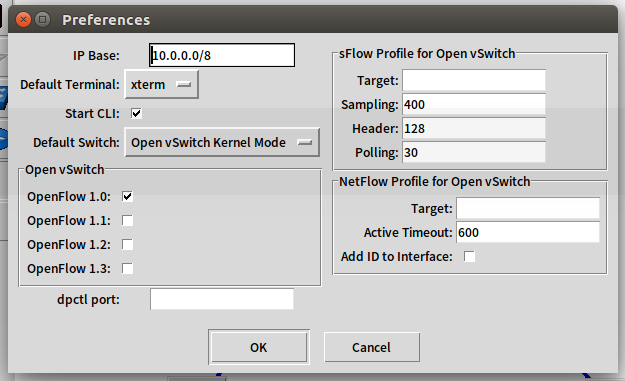
勾选完成后命令行显示

-
点击run启动
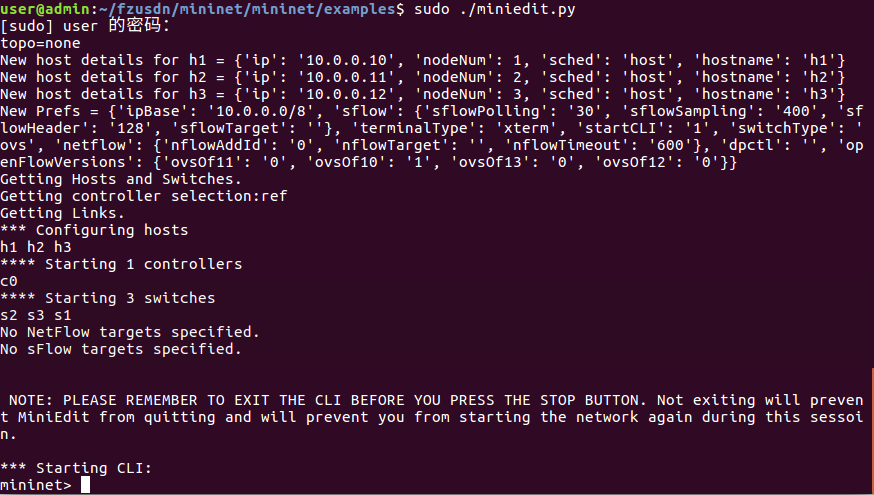
-
验证本机ip地址
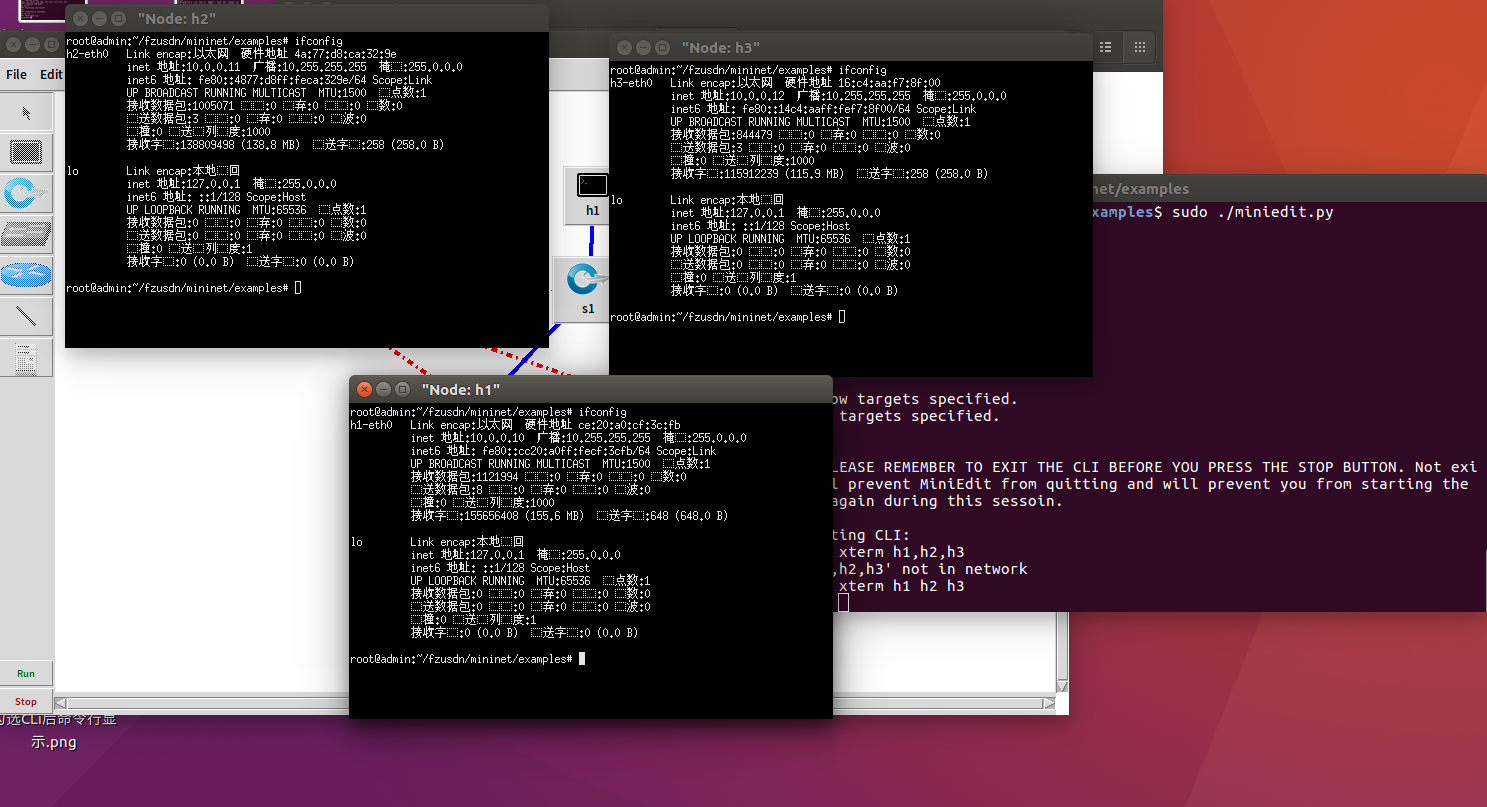
4. 利用Python脚本完成如下图所示的一个Fat-tree型的拓扑(交换机和主机名需与图中一致,即s1s6,h1h8,并且链路正确,请给出Mininet相关截图)
class MyTopo( Topo ):
"Simple topology example."
def __init__( self ):
"Create custom topo."
# Initialize topology
Topo.__init__( self )
L1 = 2
L2 = L1 * 2
L3 = L2
c = []
a = []
e = []
# add core ovs
for i in range( L1 ):
sw = self.addSwitch( 's{}'.format( i + 1 ) )
c.append( sw )
# add aggregation ovs
for i in range( L2 ):
sw = self.addSwitch( 's{}'.format( L1 + i + 1 ) )
a.append( sw )
# add links between core and aggregation ovs
for i in range( L1 ):
sw1 = c[i]
for sw2 in a[i/2::L1/2]:
self.addLink( sw2, sw1 )
#add hosts and its links with edge ovs
count = 1
for sw1 in a:
for i in range(2):
host = self.addHost( 'h{}'.format( count ) )
self.addLink( sw1, host )
count += 1
topos = { 'mytopo': ( lambda: MyTopo() ) }
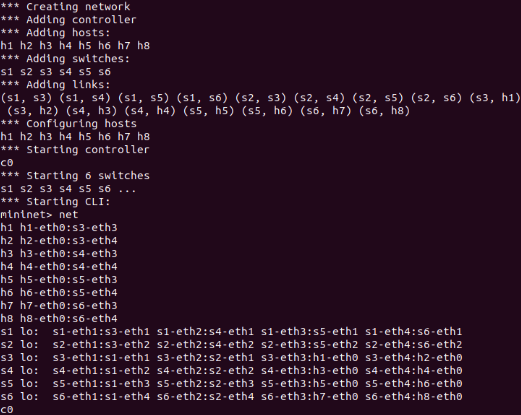
实验总结:
通过实验,初步了解了SDN的相关知识,学会了使用3种不同的方式建立拓扑。

